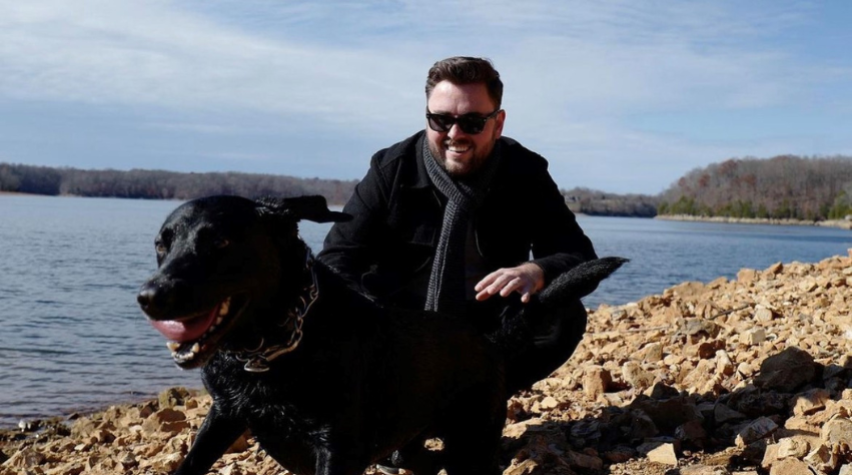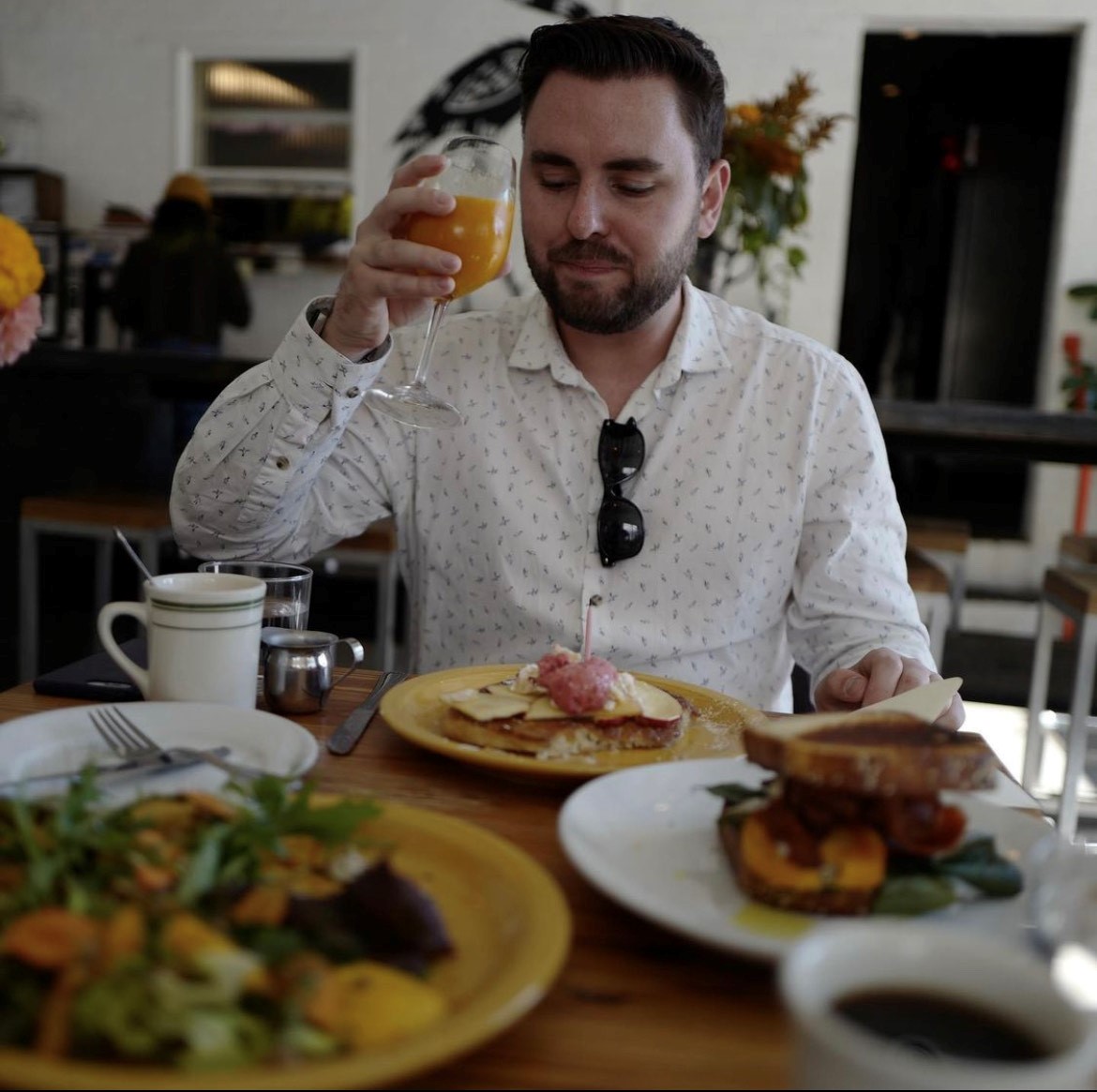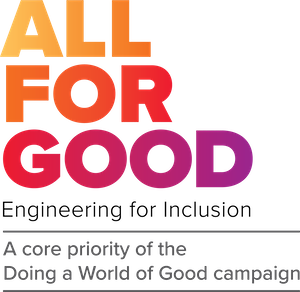
AIChE presents the most recent post in this series featuring LGBTQ+ engineers and their allies as part of an ongoing effort to share stories of equity, diversity, and inclusion. Other related efforts include a variety of LGBTQ+ programs and events at the 2021 Annual Meeting and ASC. These programs and events were all supported by the AIChE Foundation’s Doing a World of Good Campaign.
In this installment of our series, we interviewed Adam Caparco, who shared his story as an LGBTQ+ postdoc at the University of California, San Diego.
Where did you complete your chemical engineering education?
I got my B.S. at UCLA and my PhD at The Georgia Institute of Technology, both in chemical engineering. I’m now completing my postdoctoral fellowship in a nanoengineering research lab at UCSD.
How many years have you been a member of AIChE?
I’ve been an AIChE member for 6 years.
Tell us a bit about your job and your job responsibilities. What’s a typical day at work?
As a postdoc, I spend a lot of time planning and executing experiments. Compared to my graduate research, my approach is much more streamlined and efficient since I also must make time to apply for grants and fellowships, attend meetings, and mentor my undergraduates and master students. In many ways, I feel like a team lead and have learned to delegate, block out time to write, and use my calendar to keep myself on track.
I would say a typical day at work involves planning experiments and writing emails from home, getting into the lab mid-morning to get some experiments going, discussing results with my team over coffee, and then continuing lab work until evening. Since I work with viral nanomaterials for agricultural applications, I also spend quite a bit of time cleaning soil off my bench and growing plants, nematodes, and bacteria for my assays. I always end my days with a walk in the park or a drive along the beach to clear my head.
Tell us a bit about your experience as an out LGBTQ+ professional working in engineering.
My relationship with being out in the workplace has been very good, and I feel fortunate that I have only worked in places that seem more inclined to acceptance than others. I wish this sense of security was present in all workplaces. However, I would say there are a few challenges that persist, even living in Southern California and Atlanta.
The first is that, in academic engineering spaces, there are not many out LGBTQIA+ role models that I have come across. Particularly in all the departments that I have been in, I have not been aware of professors that are openly queer and very few have been pronounced allies. I think this stems from an older culture of “all that matters is the science” that exists in these spaces. I would challenge others to think about the degree to which they bring personal small talk and politics into the workspace, and how queer folks may or may not feel welcome to engage in these conversations.
The second challenge is that, as a trainee moving on the tenure-track faculty path, I have been required to relocate a few times and will likely have to relocate again when I apply for faculty positions. This requires me to grapple with if and how I want to come out in each space, and learning how to navigate new group dynamics to make myself comfortable with this can be a little emotionally draining.
Ultimately, I think that I am a very proud and outspoken gay man, and once I’m comfortable in a space, I’m happy to serve as the role model that I wished I had in these spaces when I was younger.
What are the most important issues that LGBTQ+ engineers deal with in the workplace today?
I think there are two categories of issues facing LGBTQ engineers in the workplace today. The first is addressing blatant discrimination, whether from peers, the state legislature, or management. Particularly in an age where certain statehouses are working around the clock to perpetuate the “culture war” and targeting transgender people, the parents of transgender people, and the rights of LGBTQIA+ folks to adopt, advocate for their own health decisions, and marry.
It’s important for allies to step up. Bullies get emboldened when they think they have solid support from those in power, and it’s up to all of us to ensure that no one is discriminated against in the workplace or for living their experience.
The second is the burden of educating and serving as a liaison to their heterosexual and cisgender peers. Across all underrepresented groups, it often falls to those in the group to answer questions, comment on current events, and serve as a mirror of morality to those who are white, cisgender, or heterosexual. I would challenge those who want to be active allies to educate themselves and take some of this burden on themselves. There are many great books, websites, and podcasts about the challenges of being LGBTQIA+ in the workplace, the history of the LGBTQIA+ movement, and how to talk to peers to educate them.
Do you know others in the profession who struggle with being out in today’s workplace?
Of course! Regardless of immediate circumstances, a life of feeling like you’re keeping a shameful secret can be difficult to unlearn. I think it’s important to remember everyone is on their own timeline and to be gracious if and when someone confides in you. Before I came out, dismantling a lot of the uncertainties of how people might react by talking it out with my sister was amazingly effective. I imagine that kind of approach might be helpful to those struggling to be out.
How can people (peers who are allies, and members of management and leadership who are allies) help foster a more inclusive environment for LGBTQ+ chemical engineers?
I think allies and people in management can do more to educate themselves on the diversity, equity, and inclusion for all underrepresented groups, particularly the intersectionality of experiences for those with multiple underrepresented identities. Management should promote the formation of employee resource groups, bring in speakers to discuss diversity and inclusion in the workplace, and make tangible and proactive choices to show that there is a commitment to equity in the workplace.
Destigmatizing talking about personal experiences and current events that affect underrepresented people would go a long way in making the workplace feel safer and more respectful for everyone.
Do you have any suggestions of what out LGBTQ+ chemical engineers can do to help make their professional climate more safe, welcoming, and inclusive for diverse engineers?
I’m a firm believer that everyone should have a strong background in social sciences and ethics to promote a welcoming environment. Particularly for engineers, who may have not been exposed to concepts of sociology in their college curriculum, this is something we must seek out for ourselves.
I think history and empathy are the most powerful tools we have to understand one another and the context of current fights for equity and equality.
If you are a white, gay, and a cisgender man like me, it might benefit you to learn more about the movements for women’s rights, racial equality, and transgender rights. If you haven’t yet educated yourself on the fights for justice within your own identities, learn more about those too! Seeing how the movements draw on one another, how many of the problems in society persisted within these movements (racism, homophobia, misogyny, transphobia), and the steps taken/remaining in each movement can really contextualize everything for you.
Obviously, I’m a bit of a history nerd and I know everyone won’t make time for this, but I encourage you to ask your friends for podcast or book recommendations if you’re interested!
Tell us a bit about your personal life.
I currently live in San Diego, CA, and work at UCSD as a postdoc. Ultimately, I’m trying to be a professor working on environmental biotechnology projects. I’ve always had an affinity for things like bioremediation and climate justice, and I hope my future research can make an impact in this space. I would consider myself to be helpful, outspoken, and intense in a work environment. In my personal life, I would say I’m very project-oriented, friendly, and borderline bougie. I’m happiest when I have a soundtrack to my day or when I’m talking with other people.
I have more interests than I have time to indulge, but most of my hobbies are centered around food and nature. Cooking and entertaining are some of my favorite things (especially if someone is helping me host a dinner party), and I would say I’ve dabbled in more styles of cooking than any of my close friends. I rarely like to make the same thing twice, and I’m almost always proud of my final product. I also power walk for 4 miles (with a cold brew) every day to clear my head, get my steps in, and pretend that I’m tanning. When I’m not cooking or walking, I’m probably playing video games or taking a call with a friend.

Are there any LGBTQ inspirations, role models, or moments in history that are important to you?
There are so many answers I could give (and many would lead me back to Drag Race or Real Housewives), but I think the work of Eric Marcus really impacted me and my understanding of being gay quite a bit. His podcast series “Making Gay History” opened my eyes to all the incredible people involved in the fight for LGBTQIA+ rights.
Mr. Marcus is a journalist and self-described “accidental oral historian,” but he was prescient to seek out and record interviews with important players in the history of LGBTQIA+ rights that would have otherwise been lost to history. While on fellowship in France and devoid of other American English speakers, I binged this podcast and learned so much about those who came before me. It really framed my perspective on what it means to be a gay man today and gave me the tools to acknowledge and honor those who came before me.
Do you have a story about an effective or inspirational professional ally you’d like to share?
My professor during grad school, Dr. Julie Champion, was such an important ally to me. In my first two months of grad school, I remember being a nervous and sheltered LA boy freshly moved to Atlanta for my PhD at Georgia Tech (little did I know it was a great place to be gay). I had no idea what living in Atlanta would be like and I was actually quite apprehensive about coming out at work/school. But eventually it came up naturally during a conversation with Dr. Champion, and she was so helpful, offering to connect me with a slew of professional resources and encouraging me to volunteer at the LGBTQIA+ center on campus.
Dr. Champion would enroll in trainings to be a better ally, would put up stickers on her office door to publicly announce her allyship, and was one of the first professors in our department to add pronouns to her email signature. If something terrible happened, like very public hate crimes or discriminatory legislation/Supreme Court decisions, Dr. Champion would always make sure to create space to discuss these events in group meetings and make sure everyone was ok. I really learned a lot from her mentorship style, and I really hope I can emulate it one day when I’m a professor.
Who is your favorite LGBTQ icon?
I famously don’t answer questions about favorites, since I think they exclude all other possibilities. BUT, I will say that Bowen Yang and Matt Rogers from Las Culturistas are my current LGBTQ icon obsessions. They are so funny, smart, and topical, and they bring on many amazing guests on their podcast. Seeing them both thriving on screen, writing, and doing tours of their own material is also amazing. I think they capture something unique in their seemingly non sequitur banter that really gets to the heart of all aspects of culture.
Gaydar: Does it exist?
The notion of a gaydar is kind of precarious since it’s largely based on stereotypes, but I can play along. As an empiricist and engineer, I would say that there are some general classes of people that I might “keep my eye on” to see if there is mutual interest. But I need evidence to be certain, like locked eyes with a lingering gaze, a flirty smile, or for him to be in large group of only men going to get Sunday brunch at 1pm. If gaydar does exist, some people’s need to be recalibrated, because I have been mistaken for straight a few times too many…
Join AIChE’s LGBTQ+ & Allies Online Community
This community is open to professional AIChE members who are LGBTQ+ and allies. Topics of discussion will include the ongoing development of LGBTQ+ initiatives at AIChE, plus issues concerning, and opportunities for, LGBTQ+ chemical engineering professionals.
Learn more about the community.
This initiative is supported by the AIChE Foundation's Doing a World of Good Campaign.
AIChE Foundation – All for Good Campaign

Learn more about AIChE’s Diversity and Inclusion Initiatives.
Interested in helping?
Are you an LGBTQ+ chemical engineer and AIChE member interested in sharing your story to help create awareness around diversity and inclusion? Are you an LGBTQ+ ally interested in helping with diversity and inclusion efforts? Send us a note at chenected@aiche.org with the subject “Diversity and Inclusion.”


